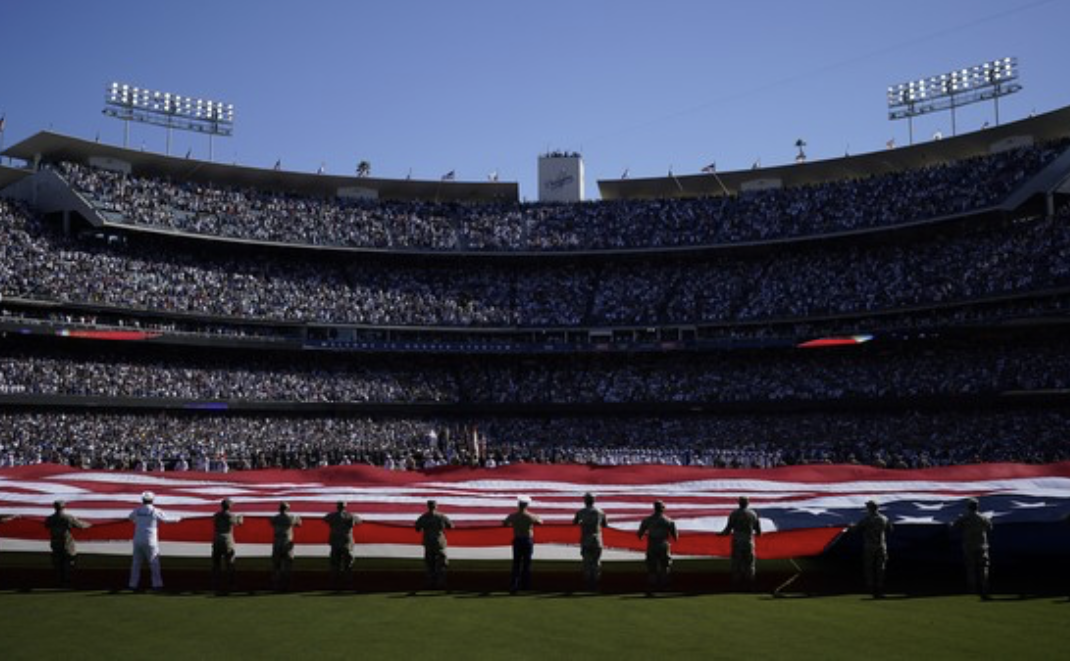The survey, conducted with NORC at the University of Chicago, a nonpartisan research organization, also finds the country sharply divided by political party over social trends such as the push for racial diversity in businesses and the use of gender-neutral pronouns.
Some 38% of respondents said patriotism was very important to them, and 39% said religion was very important. That was down sharply from when the Journal first asked the question in 1998, when 70% deemed patriotism to be very important, and 62% said so of religion.
The share of Americans who say that having children, involvement in their community and hard work are very important values has also fallen. Tolerance for others, deemed very important by 80% of Americans as recently as four years ago, has fallen to 58% since then.
Bill McInturff, a pollster who worked on a previous Journal survey that measured these attitudes along with NBC News, said that “these differences are so dramatic, it paints a new and surprising portrait of a changing America.’’ He surmised that “perhaps the toll of our political division, Covid and the lowest economic confidence in decades is having a startling effect on our core values.’’
A number of events have shaken and in some ways fractured the nation since the Journal first asked about unifying values, among them the Sept. 11, 2001, terrorist attacks, the financial crisis of 2008 and subsequent economic downturn and the rise of former President Donald Trump.
The only priority the Journal tested that has grown in importance in the past quarter-century is money, which was cited as very important by 43% in the new survey, up from 31% in 1998.
Aside from money, all age groups, including seniors, attached far less importance to these priorities and values than when pollsters asked about them in 1998 and 2019. But younger Americans in particular place low importance on these values, many of which were central to the lives of their parents.
Some 23% of adults under age 30 said in the new survey that patriotism was very important to them personally, compared with 59% of seniors ages 65 or older. Some 31% of younger respondents said that religion was very important to them, compared with 55% among seniors.
Only 23% of adults under age 30 said that having children was very important.
To Kevin Williams, a commercial and residential painter in Bend, Ore., many of these values are linked. Mr. Williams, 33 years old, said he thought that patriotism is declining as a civic value in tandem with rising individualism, a sense of entitlement among many people and a decline in community involvement, possibly because of people focusing on their own racial or cultural backgrounds rather than what Americans have in common.
“I think patriotism encompasses being part of your community and helping other Americans,’’ said Mr. Williams, who said he coaches youth sports and volunteers with a group that provides security at protests and rallies.
Mr. Williams said that, as a middle-school student at the time of the Sept. 11, 2001, attacks, he knew then that he would join the military. “I just felt that I wanted to do my part to protect my country,’’ said Mr. Williams, who supported former President Donald Trump’s two White House campaigns. He eventually served four years in the Marines.
To see this article in its entirety and subscribe to others like it, choose to read more.
Source: America Pulls Back From Values That Once Defined It, WSJ-NORC Poll Finds – WSJ
 Listen Online
Listen Online Watch Online
Watch Online Find a Station in Your Area
Find a Station in Your Area










 Listen Now
Listen Now Watch Online
Watch Online
